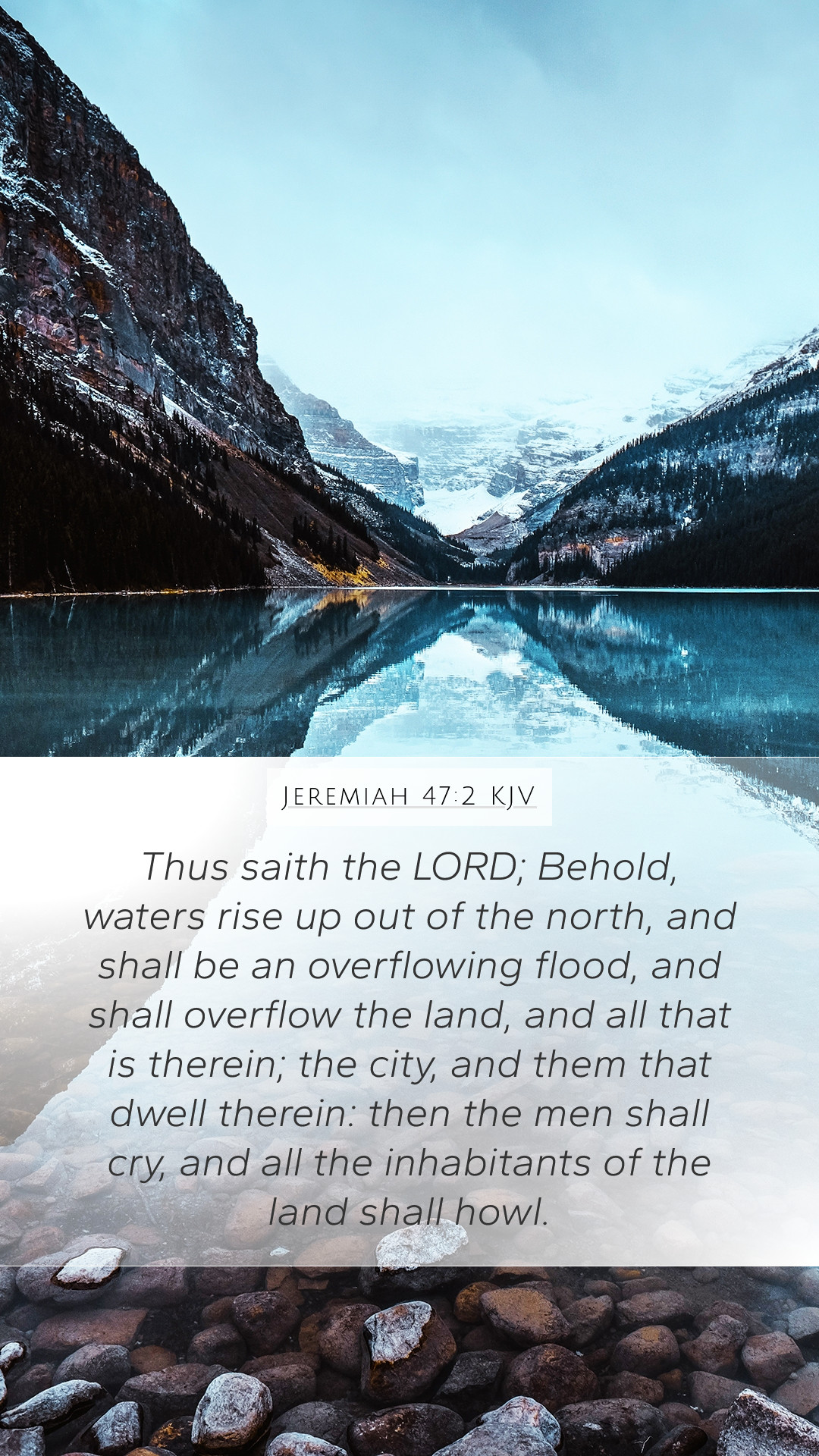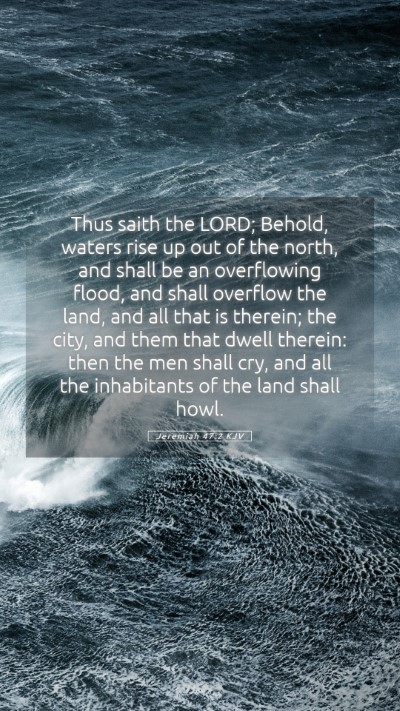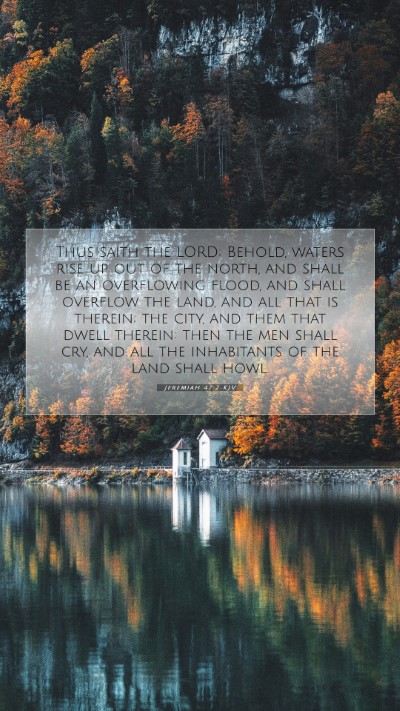Jeremiah 47:2 - Verse Overview
Jeremiah 47:2 states: "Thus saith the Lord; Behold, waters rise up out of the north, and shall be an overflowing flood, and shall overflow the land, and all that is therein, the city, and them that dwell therein: and the men shall cry, and all the inhabitants of the land shall howl." This verse serves as a prophetic declaration regarding impending judgment upon the Philistines, signifying destruction and chaos. It resonates deeply within the broader themes of divine retribution and the consequences of human actions.
Meaning and Interpretation
-
Divine Judgment:
Matthew Henry notes that the rising waters symbolize the swift judgment of God, which can come suddenly and with overwhelming force. God's holiness demands justice, and the nations that defy Him will face dire consequences.
-
Imagery of Flood:
Albert Barnes explains that the flood imagery represents complete devastation. Just as a flood can destroy homes and landscapes, the judgment of God here implies that nothing will be left standing in the wake of His wrath.
-
Historical Context:
Adam Clarke highlights the historical backdrop of this prophecy, recognizing that the Philistines had a tumultuous relationship with Israel. This context enriches our understanding of not only the immediate implications for the Philistines but also serves as a reminder of the consequences of wickedness against God's chosen people.
Theological Themes
-
Mercy and Justice:
This passage exemplifies the balance of God's mercy and justice. While God is patient and slow to anger, there comes a time when His justice must prevail, leading to judgment for persistent wrongdoing.
-
The Role of Prophecy:
The use of prophecy in this context is crucial; it serves not only as a warning but also as a means of calling the Philistines and Israel to repentance. The foretelling of destruction is ultimately an invitation to turn towards God's mercy.
Practical Applications
-
Understanding the Consequences:
For contemporary readers, this passage illustrates the importance of understanding the consequences of sin and rebellion against God. Recognizing that God's judgment can come unexpectedly encourages vigilance and a return to righteousness.
-
Encouragement for Repentance:
It is a reminder of the need for repentance in our own lives. Just as the Philistines faced God's wrath, we too must reflect on our actions and seek God’s grace before judgment is rendered.
Comparative Verse Analysis
- Isaiah 17:12-14 – A similar theme of overwhelming destruction for nations opposing God.
- Ezekiel 30:4 – Another prophecy of calamity directed towards nations as a judgment from God.
- Amos 8:8 – A depiction of God's judgment as a consequence of social injustice and disregard for divine laws.
Conclusion
Jeremiah 47:2 is a potent reminder of the seriousness of God’s judgment and the urgent call to reverence His authority. The flood imagery poignantly illustrates the impact of divine wrath, while simultaneously prompting reflections on mercy, repentance, and the broader consequences of our moral decisions.


